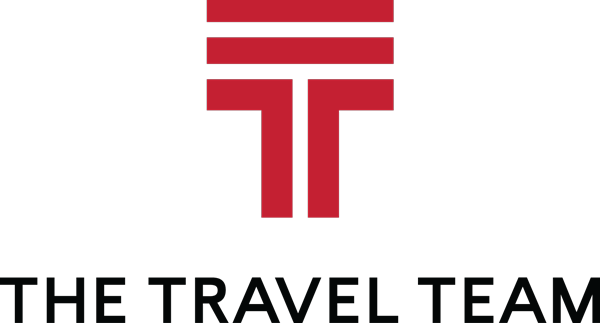Corporate travel management budgets represent a significant cost that can make or break your business. Even in the digital world, the value of face-to-face contact is higher than ever for the variety of job roles that require occasional or frequent travel. But understanding the true ROI of your travel program can be difficult within the complex modern travel environment.
Emerging tools and approaches can assist with these challenges, all while freeing you and key employees up to do less tracking, less reporting, and less of what isn’t profitable for your business. Travel management companies (TMC) can help execute multiple types of corporate travel management strategies that balance employee needs with ROI targets.
Personalize Service
Companies of any size can thrive with travel program support and optimization. But maximizing the benefits of a TMC means working with travel advisors that know your business and the travel landscape. Corporate travel advisors at The Travel Team can assist with booking, tracking, reporting, and consulting—especially when it comes to last-minute changes to travel itineraries. When there are emergencies or delays, personalized service can help pivot to alternatives that avoid surprise expenses.
Companies unhappy with their current travel programs, whether they are working with a third-party TMC or managing travel in-house, can benefit from on-call travel advisors familiar with their account and its needs. These personalized strategies can instantly transform your corporate travel program while putting you on the path to meeting long-term ROI goals.
Streamline Business Travel Processes
As companies grow and the travel landscape becomes more complex, travel management workflows can become disorganized. Too many resources are spent tracking expenses and current travel rates, leading to an unoptimized program prone to error and missed opportunities.
Working with a TMC means simplifying those workflows at the administrative and individual employee levels while enhancing transparency. The Travel Team can help implement systems that automatically guide travel policies, removing the internal back and forth that can come with designing itineraries in line with mandates. Finance teams will enjoy better clarity on the true cost of travel and a reduction in avoidable surprise expenses. The end result is a more consistent, sustainable travel program.
Use the Latest Technology
As a partner of leading travel management expensing platform SAP Concur, The Travel Team is uniquely able to implement these systems with limited ramp-up time for immediate and sustained benefits.
Online booking tools (OBT) have both grown more sophisticated over the years and become easier to use. OBTs are the heart of an optimized travel experience—a way to make real-time travel arrangements like booking flights, lodging, and vehicles. Managers can access dashboards to help break down costs by business division, region, and billable versus nonbillable activities and expenses. The Travel Team combines its expertise with the latest technology to provide you with data that enables your business to take advantage of lower rates and more productive itineraries.
Manage Vendors Better
Vendor management with a TMC benefits from both the expertise of our advisors and the powerful technology they use. Data and insight combine to reveal opportunities to consolidate booking with a focus on mutually beneficial vendor relationships. While it seems prudent to select the lowest prices for each and every trip, you may miss opportunities to obtain meaningful savings with bundling or booking in bulk. Vendors are known to reward loyal customers with perks like free wifi or breakfast, boosting employee happiness while also supporting more productive business trips.
Simplify Travel Policies
TMCs allow for the best of both worlds for employees and management. With a focus on flexibility and consistency, The Travel Team can help instill a nimble travel culture, where employees feel freed by a TMC, instead of being held back by heavy-handed mandates. Avoid chasing single-price saving, and instead, focus on policies that reflect long-term ROI goals.


